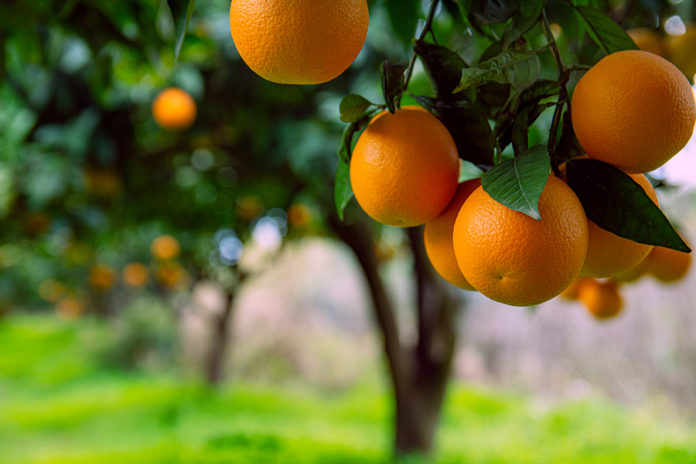
By Carlos Fernandez, Executive Vice President, Customer Sustainability and Market Development, JBT Corporation
For many years, sustainability has remained top of mind for food and beverage processors and consumers. This will continue in 2023 as prioritizing efficiency and waste reduction remains on the leading edge of industry trends and innovations. Per an IDC industry report, nearly 30% of food and beverage decision-makers reported consumer demand for eco-friendly products and offerings as their top factor for organizational change toward greater sustainability. It is essential for today’s conscientious customers that the brands they support are making decisions that are positively impacting the environment today and for the future. Many food and beverage manufacturers have already made commitments to achieve net zero greenhouse gas (GHG) emissions, conserve water, and use natural resources more efficiently.
In 2023, food and beverage manufacturers will need to bolster their commitment to sustainability in order to combat today’s uncertain economic and environmental climate with these five trends:
1. Prioritize ESG
It is essential for food and beverage manufacturers to prioritize positive climate action initiatives in 2023, while also thinking long-term about where the industry is headed and how organizations can adapt to consumer demand and remain competitive. Investing in innovative technology solutions that help take meaningful steps toward achieving sustainability and business goals will be key in 2023.
Utilizing environmental, social, and corporate governance (ESG) is an indispensable part of profitable growth strategies. The manufacturers implementing new technologies to reduce food and packaging waste, water consumption, and electricity to address both the social and environmental impact of the industry will continue to be a source of growth and transformation for years to come.
2. Adopt packaging alternatives
Brands that implement sustainable packaging alternatives for their products have found that 60-70% of consumers are willing to pay more for less climate impact. More food and beverage processors will shift and adopt packaging alternatives that use compostable, paper, and paperboard materials to be more sustainable in 2023. Mono-material plastics are being adopted across the industry, which can be easier to recycle than the current industry standards of multi-material layered plastics. Additionally, tray sealing packaging will continue to increase in popularity as it significantly reduces the use of plastic and energy, while also preserving product quality all the way from the production line to the end consumer.
3. Save water and energy
More than 2 billion people live in countries experiencing high water scarcity, including many parts of the world where our food and beverages are made. The increasing frequency of droughts and dropping water tables add to the concerns around water scarcity risks, particularly for processors with water-intensive operations. In 2023, we will see the accelerated adoption of efficient steaming technology, water reuse systems that reduce the processors’ water, energy, chemical usage, and more.
Electricity and fuel represent significant costs to food and beverage manufacturers and contribute heavily to their carbon footprint. Every day, food and beverage processors are setting new climate plans, goals, and targets, looking for new ways to reduce their emissions. Investing in efficient equipment and technologies is critical to achieving those goals.
4. Reduce food waste
Food waste contributes to two of our biggest global challenges today — hunger and climate change. According to the United Nations, up to 811 million people worldwide were suffering from hunger in 2020. The food and beverage industry plays a key role in understanding the impact of food waste and improving food security. Technological innovation is necessary to find new solutions to reduce food waste.
Technology providers that address this problem through their products create a ripple effect through the supply chain, helping their food and beverage manufacturing customers contribute to a better, more equitable world. This includes developing and utilizing technology that makes the best use of natural resources. Many existing technologies already have various sustainability and cost-saving advantages that reduce the need for artificial preservatives while extending shelf life and improving food safety. For example, juice processors can do more than just extract juice – they can also process valuable by-products, including the peel, oils, and pulp.
5. Cell-based protein innovation
In addition to already popular plant-based proteins and dairy alternatives, culture-based proteins are growing in demand and will emerge as a leading alternative-protein source in 2023 and beyond. Cell-based proteins could revolutionize the way food is produced, and eliminate the need to raise and farm animals for food. Factory farming is a major producer of greenhouse gas emissions and nutrient pollution, and today, more than one-third of global greenhouse gas emissions caused by human activity can be attributed to the way we produce, process, and package food. Cell-based meat would result in significant cost, environmental, and food supply benefits.
Data from two comprehensive new studies found that cell-based protein could cause up to 92% less global warming and 93% less air pollution, and use up to 95% less land and 78% less water compared to conventional beef production. Additionally, while sustainability is a driving factor, the price must be comparable to traditional options today to see widespread adoption. Investment, research and development, and infrastructure is critical to accelerating the development of cultivated meat, and to protect the environment and address global food scarcity in 2023 and beyond.
 Carlos Fernandez is the Executive Vice President of Customer Sustainability and Market Development for JBT Corporation where he oversees customer support to reach their sustainability goals, while enhancing new product and end market development opportunities in support of growth. A visionary food processing executive, Carlos was at the forefront of the sustainable food processing technologies and pioneered JBT’s Liquid Foods business franchise by driving profitability through successful acquisitions and business strategies. Carlos brings more than 20 years of demonstrated business acumen and experience leading multinational operations to JBT and the food and beverage industry.
Carlos Fernandez is the Executive Vice President of Customer Sustainability and Market Development for JBT Corporation where he oversees customer support to reach their sustainability goals, while enhancing new product and end market development opportunities in support of growth. A visionary food processing executive, Carlos was at the forefront of the sustainable food processing technologies and pioneered JBT’s Liquid Foods business franchise by driving profitability through successful acquisitions and business strategies. Carlos brings more than 20 years of demonstrated business acumen and experience leading multinational operations to JBT and the food and beverage industry.








